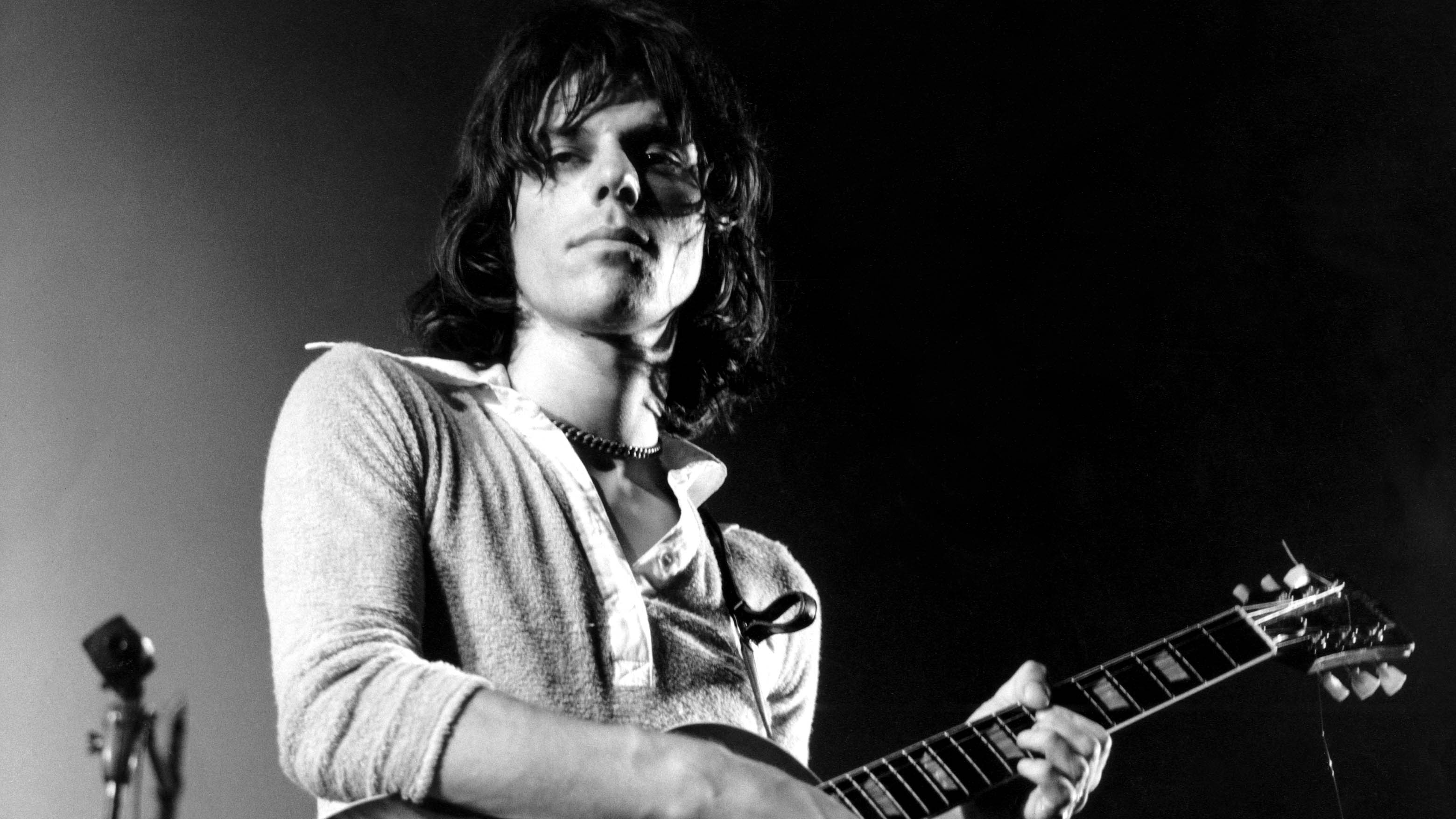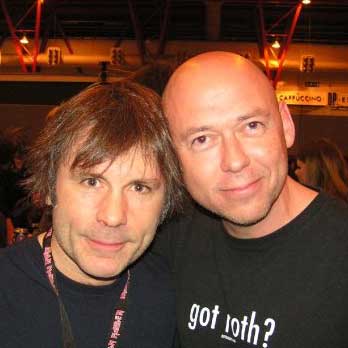“We’re all sitting around waiting. Finally, Jeff strolls in. Mickie says, ‘Jeff – where's your guitar?’ He’s like, ‘Oh, it's in the van on its way to Leeds!’”: When a classic track was created out of chaos by Donovan, Jeff Beck, Ronnie Wood and friends
“We knew that people were gonna go crazy listening to this amazing thing”

In the late ’60s, folk singer and songwriter Donovan was riding high with a run of hit singles that included such classics as Sunshine Superman, Mellow Yellow and Hurdy Gurdy Man.
During that successful and intensely creative period, Donovan worked with both Jimmy Page and John Paul Jones, who subsequently joined forces in Led Zeppelin.
And in 1969, a stellar line-up of musicians was assembled for the recording of Donovan’s most audacious song to date.
This heavy-rocking number was named Barabajagal.
To create its powerful sound, the singer was backed by guitarist Jeff Beck and two members of Beck's band – bassist Ronnie Wood and drummer Micky Waller – plus The Rolling Stones’ favourite guest keyboard player Nicky Hopkins.
And on top of all that, three great female backing singers were added into the mix.
“We knew that people were gonna go crazy listening to this amazing thing,” Donovan says now.
Want all the hottest music and gear news, reviews, deals, features and more, direct to your inbox? Sign up here.
And as he tells MusicRadar the story of Barabajagal, he begins by giving credit to the producer who did so much to shape his career – Mickie Most.
“It started one night in 1969,” Donovan says. “I needed a new single, because my last single was dropping off the charts, so Mickie says to me, ‘What have you got?’
“I played him three songs and he picked out Barabajagal. He said, ‘What the fuck is that thing called? I can't even pronounce it!'
“And he says, ‘We’ll get a band in and I’ll just roll the tape and start recording, and we won't know what the fuck is going to happen. Is that alright, Don?’ I said, ‘Yeah!’”
It was a no-brainer for Mickie Most to have another of his acts, The Jeff Beck Group, backing Donovan on this track.
A year earlier, Most had produced the group’s first album Truth, credited solely to Beck, which had the guitarist joined by Wood, Waller and a young singer named Rod Stewart.
In 1969, this same line-up was working with Most on a second album.
Donovan recalls: “Mickie said, ‘I'm doing Beck now, and I'm recording a thing called Beck-Ola. Why don't I bring Jeff in with his band?'”
For this session, Rod Stewart’s services were not required, but Donovan was well-acquainted with Jeff Beck.
“I felt kind of close with Beck,” he says. “He was living with Celia Hammond, the model, and she was best friends with my wife Linda.”
As Most had suggested, none of the musicians involved were permitted to hear Donovan’s new song before the recording session began.
As Donovan remembers it: “Mickie had said, ‘‘Nobody's got to know the song, okay? You don't play them the song until five minutes before I start the tapes. What do you think?’ I said, ‘Yeah, let's do it!’
“So for the session, Mickie had a table laid out with all the hors d'oeuvres, the best wines, and I arrive, and after me it's the drummer, Micky Waller. Always the drummer arrives first for a session.
“And I haven’t played the song to anyone yet. But as the drummer's getting the kit together he’s playing this rhythm and I said, ‘So you heard the song? You're not supposed to hear the song.’ He said, ‘What song?’ I said, ‘The track we're doing - you’re playing the drum pattern!’ He said, ‘Well, that's fucking all right, innit? See you later!’
“And then the next one comes in. It’s the guy on piano who played with the Stones – Nicky Hopkins.
“So Mickie said, ‘All right, you can play the song to Nicky.’ So Nicky goes up to the piano and he says nothing. He never did. And he opens a fucking Silver Surfer comic on the piano. He loved the Silver Surfer.
“He goes, ‘Hey Don, what’s this song? There’s only two chords.’ And I dive into it with my J-45 acoustic guitar named Cherry Red. And after a minute or so Nicky goes, ‘I've got it.’
“So then the three girls walk in – Lesley Duncan, Suzi Quatro and Madeline Bell…”
These three singers were gifted and highly respected.
In subsequent years, Lesley Duncan recorded solo and with Elton John, singing backups on Elton's early ’70s albums Madman Across The Water and Tumbleweed Connection – the latter featuring a version of Duncan’s ballad Love Song, performed as a duet. She was also a backing singer for Pink Floyd on The Dark Side Of The Moon.
Madeline Bell performed as a solo singer and with the group Blue Mink, and took session work with The Rolling Stones (on the classic You Can’t Always Get What You Want), Joe Cocker, Elton John, Giorgio Moroder and more.
Suzi Quatro, the most famous of the three, had success in the ‘70s as a glam rock star with hits such as Can The Can and Devil Gate Drive released on Mickie Most’s label RAK.
Donovan says of this trio’s contribution to his track: “I played it to the girls one time and they went, ‘Ow! Goo Goo Barabajagal!’ So right away they got it.”
Next in was the bass player. Ronnie Wood.
Donovan continues: “Woody comes in. ‘All right, what's going on?’ I play the song to Woody and he goes, ‘Okay, got it.’
“And then Mickie says, ‘Where the fuck is Jeff?’
And right at that moment Jeff strolls in, and it's like Spinal Tap. It really is. He walks in, and we're all sitting around waiting, and he sits down and nobody says a word. And finally Mickie says, ‘Jeff, where's your guitar?’
“Jeff looks around and says, ‘Yeah, where the fuck is it?’ And then he remembers. He’s like, ‘Oh, shit! It’s locked in the van on its way to Leeds for our gig tomorrow.’
“But then he says, ‘Just call up any of the rental agencies in town, and order a Fender Strat, and tell them who it's for.’ And that was it. We made the call and Jeff got the Strat.
“So we play the song once, we play it twice, and then Mickie says, ‘That's it. No more rehearsals. I’m recording the next one!’
“And we kick in, and everybody is in order, and we’re doing it – but Mickie was going to have to put it together and there was gonna have to be a drum break, because you couldn't go on forever. So at one point Mickie says, ‘Stop!’ I said, ‘What?’ He said, ’It's a train, and it’s going helter-skelter down the fucking track. We've got to stop it somewhere.’
“So Mickie tells Micky the drummer, ‘We've got to stop this train and then start it again.’ Then Mickie says, ‘What's going to happen after that?’
"Well, I had a pal with me, Julian, who played harmonica, and he said, ‘I’ve got a poem that Don can read.’ And I looked at it, and Mickie looked at it, and he said, ‘Can you do this?’ I said, Yeah.’
“So we stopped the train, and then the train started again. That’s the coda for the song. And Mickie went, ‘Jesus Christ, this is unbelievable!’”
Barabajagal was released as a single in June 1969 and rose to No.12 in the UK and No.36 in the US.
The initial pressings gave the song its full title: Goo Goo Barabajagal (Love Is Hot).
It was Donovan’s last big hit. It also remains one of his greatest and most experimental songs. And as he says now, in tribute to his departed friend: “Jeff was incredible on it.”

Paul Elliott has worked for leading music titles since 1985, including Sounds, Kerrang!, MOJO and Q. He is the author of several books including the first biography of Guns N’ Roses and the autobiography of bodyguard-to-the-stars Danny Francis. He has written liner notes for classic album reissues by artists such as Def Leppard, Thin Lizzy and Kiss. He lives in Bath - of which David Coverdale recently said: “How very Roman of you!”
You must confirm your public display name before commenting
Please logout and then login again, you will then be prompted to enter your display name.


